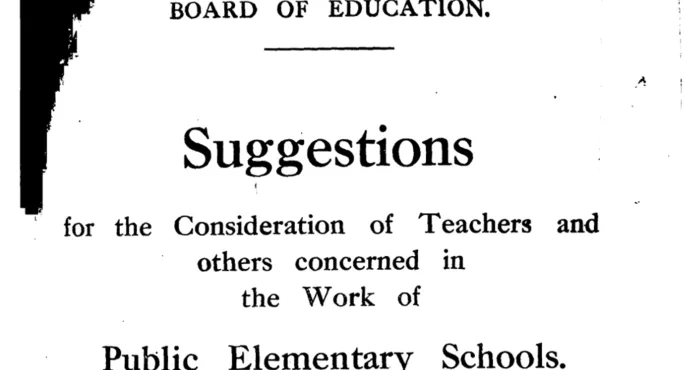In 1905, following a disastrous period characterised by “payment by results”, a chastened Board of Education issued its Suggestions for the Consideration of Teachers. In 2016, following a disastrous period of “payment by performance data”, coupled with assessment gaffes of laughable proportions, a chastened Department for Education should consider reissuing advice using its predecessor’s wise words.
Here I reproduce the board’s own text - except for replacing the name of the issuing authority, substituting “pupil” for “scholar” and removing sexist early 20th-century language.
“In issuing this volume the Department for Education desire at the outset to emphasise its tentative character and to invite well-considered criticism… Teachers should treat it as an aid to reviewing their aims and practices, and as a challenge to independent thought on such matters. Substantial agreement, or dissent on definite and reasoned grounds, fortified by experience, will be results equally welcome to the department…..
“The only uniformity of practice that the department desires to see… is that each teacher shall think for themselves and work out for themselves such methods of teaching as may use their powers to the best advantage and be best suited to the particular needs and conditions of the school. Uniformity in details of practice (except in the mere routine of school management) is not desirable even if it were attainable. But freedom implies a corresponding responsibility in it use… No teacher can teach successfully on principles in which they do not believe…
The problem with exams
“Examinations conducted by external authorities are an interruption to continuous school work: unless they are most intimately related to the work which has been done both in and out of the class they have a tendency to divert the pupil, not merely from discursive and aimless wanderings in the field of knowledge, but from all study but such as can be reproduced in competitive display: and they encourage a knack of presenting knowledge in compact and handy forms which tends to make the pupil forget or disparage the larger purposes of study…
“The purpose of the school is education in the full sense of the word: the high function of the teacher is to prepare the child for the life of a good citizen, to create or foster the aptitude for work and for the intelligent use of leisure, and to develop those features of character which are most readily influenced by school life.”
Wouldn’t such wise words be welcome and make an important contribution to counteracting the current educational malaise? Many of the phrases are well worth ending with exclamation marks!
Colin Richards is a former primary school teacher, university professor and HMI




